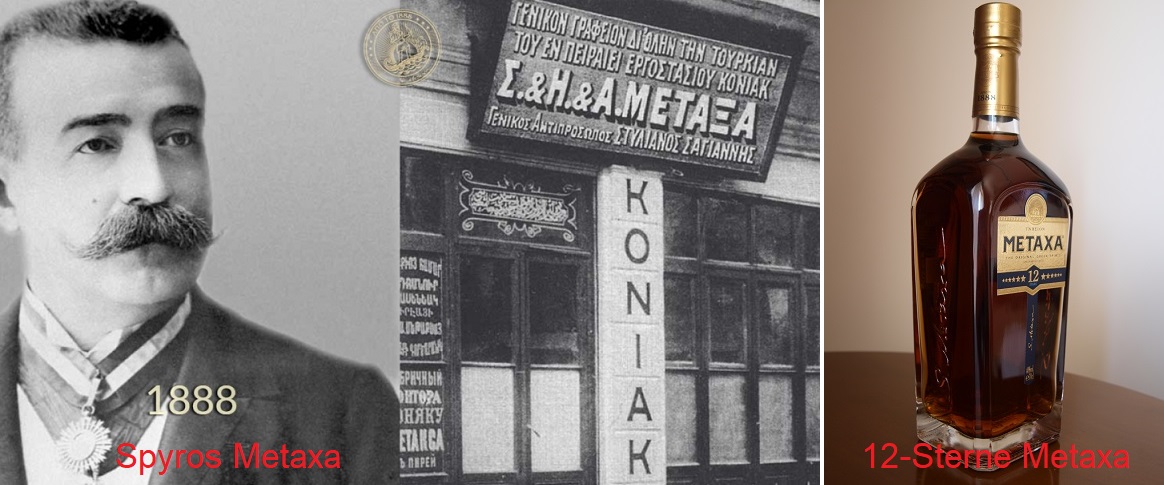The famous brandy from Greece is named after its founder Spyros Metaxa (1848-1909). In 1880, he and his two brothers acquired extensive vineyards in the best locations in Piraeus in the Attica region. He experimented with blending different wines and began distilling the product so named in 1888. During the construction of the first factory, an ancient coin with the symbol of the "Salamina Warrior" was found.
This refers to the battle on the island of Salamis in 480 BC, in which the Greek fleet of Themistocles defeated the fleet of the Persian king Xerxes I (519-465 BC). The find was seen "as a sign of divine intervention" and the coin became a trademark emblazoned on every label. Metaxa was exported to the USA as early as 1900. Today, the brandy is sold in 110 countries. Spyros and Elias Metaxa joined the company in 1960. In 1989, the family sold it to Distillers & Vintners (IDV). Finally, in 2000, Rémy Cointreau acquired the majority of shares.

Production
Metaxa is still produced today with the same traditional methods and care. The grapes used to make Metaxa are left to ripen in the Mediterranean sun for an average of over 2000 hours. The fully fermented wine from three different grape varieties is fortified with an existing wine distillate to an alcohol content of at least 18% to a maximum of 24% by volume. The resulting wine for distilling is then distilled into a high-proof distillate with 52 to 86% vol. This is intended exclusively for further processing.
Storage time
The distillates are stored for years in French oak barrels from the Limousin region. The initially light colour changes to golden yellow. The distillates are then filtered through a secret blend of herbs (one of the known ingredients is rose petals) and only then is the finished product finalised by skilfully blending various distillates. The alcohol content of the finished Metaxa is 38 to 40% vol. depending on the brand. Compared to other brandies such as Armagnac or Cognac, Metaxa has a honey-sweet and raisiny flavour. As with all brandies, a small amount of the alcohol evaporates during storage. Spyros Metaxa was convinced (as a marketing gag) that this "angel's share" was brought to Mount Olympus by good spirits and served to the gods there.
The number of stars refers to the barrel storage time in years; there are 3-star, 5-star, 7-star and 12-star Metaxas. Limited editions are released for various occasions, such as the "Grand Olympian Reserve" aged for 15 years in a porcelain decanter or "Centenary", which is sold in numbered bottles and costs several hundred euros. These top products are distinguished by the addition of rare herbal and plant extracts. The oldest but rarest is the "Private Reserve", which has been aged for 30 years (previously 40). The company also produces an ouzo (aniseed schnapps).
Further information
For the production of alcoholic beverages, see Champagne (sparkling wines), distillation (distillates), spirits (types), winemaking (wines and wine types) and wine law (wine law issues).
Spyros Metaxa: Radio Crete
Metaxa bottle: By Tolisr - Own work, CC BY-SA 3.0, Link
Voices of our members

For me, Lexicon from wein.plus is the most comprehensive and best source of information about wine currently available.
Egon Mark
Diplom-Sommelier, Weinakademiker und Weinberater, Volders (Österreich)